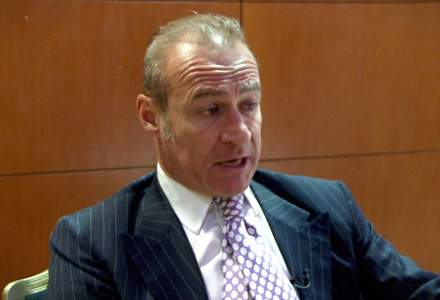 This month’s Viewpoint features a two-part interview where Becky Liggero sits down with Quirino Mancini from Italy and Gayle Kimberly from Malta. In the first part of the interview, they talk about what it takes to get licensed in their respective jurisdictions, the tax regime for their licensed operators and their thoughts about each EU state coming up with their own licensing regime.
This month’s Viewpoint features a two-part interview where Becky Liggero sits down with Quirino Mancini from Italy and Gayle Kimberly from Malta. In the first part of the interview, they talk about what it takes to get licensed in their respective jurisdictions, the tax regime for their licensed operators and their thoughts about each EU state coming up with their own licensing regime.
Becky: The gaming industry is very focused on regulation these days. Will all 27 EU member states adopt their own licensing system? And how can operators remain profitable with all the taxes and fees? Another big question mark is what the future holds for the established jurisdictions whose license encompasses multiple nations such as the Isle of Man, Alderney and Malta. To find out more, in this month’s viewpoint I sat down with Quirino Mancini of Italy and Gayle Kimberly of the LGA Malta, an established jurisdiction that regulates beyond its borders.
Becky: Quirino tell me about your jurisdiction and what it takes to get licensed in Italy.
Quirino: A lot of time.
Both: (Laughter)
Quirino: No, actually it shouldn’t take too much time. What could be very time consuming is the putting together of the application particularly if you’re coming from a foreign jurisdiction and so you’re not supposed to be able to produce all those papers that typically an Italian company would have to submit. The most painful and time consuming part of this exercise is the putting together of the documentation which entails more or less the usual fit and proper stuff that you have to comply with in any jurisdiction.
Becky: So Gayle tell me what it takes to get licensed in your jurisdiction.
Gayle: Right. Well, anyone who wants to be licensed in Malta needs to be first and foremost a company established to operate gaming services and then it’s quite straightforward actually. You submit the relevant application forms together with a series of documents which are available on our website. After which, we review the business plan, the due diligence, the technical specifications and if all is in line, hey presto! You have your license.
Becky: What is the tax regime for the operators that are licensed in your jurisdiction?
Quirino: Tax system at the moment is a hybrid system because it’s a combination of turn-over based and GBT (global bank tax) based. It’s turn-over based with respect to those games that have long since been legal and regulated in Italy. Sportsbook, horserace, betting, skill games including poker tournaments which aren’t taxed that 3% of turn-over. It’s GBT based with respect to the so called new games or cash games which include online poker, online casino and table games and when they would be regulated at further down the road, online slots as well. For all these new games which were only recently legalized and regulated, the tax rate is 20% flat-rate of GBT.
Gayle: We’ve got four different classes of licenses so each has a different tax system and again there’s everything on the website but definitions of the classes some have a fixed tax rate, others have a percentage based on different amounts but everything’s available depending on the class of license on our website as well. I think we struck it quite right with the tax system in the sense, it’s a fair system of taxation. A lot of other countries have either imposed taxes which are prohibitively high or have not quite figured out the best way to tax and I think comparatively it’s a very good system. It works quite well actually.
Becky: So what do you think about each EU member state coming up with their own licensing regime?
Quirino: I don’t see a situation where in the foreseeable future there will be 27 countries in Europe that will all adopt the same model because not all of them are so keen to open up their markets. Take Norway. Norway is doing fine, Norway is a very rich country, very few guys over there…lots of oil… more oil than guys. They’re doing extremely fine… they have not one good reason to open up the market. They will stick with their monopoly. Germany, Germany is a work in progress… things may happen in Germany but the fact of the matter is that as we speak, they still have a federal law in place which states that online gambling is illegal.
Gayle: We did join the European Union which has an established set of laws and principles and jurisprudence, case law of the European codes which very much say that you know, you have to allow the free movement of services in line with EU treaties. So I think that all these national restrictions are one dodgy respective European law. Of course, you’re allowed to restrict but you need to justify them and I think the restrictions which are allowed and the justifications which allow to maintain those restrictions are very often not there. So it creates a lot of uncertainty…legal uncertainty for the operators in the market who attempts to go in these other countries on the basis of the European treaty saying ‘You know I’m an operator duly licensed in an EU member state. I’m allowed to provide my services across border’ and then they face restrictions. And then begins the battle to say, well is it legal? And then of course you’d have to go case by case into each restrictive national policy to see if it holds ground or not whether they have justifiable excuses plus the other conditions laid down by the codes you know so my first, obviously my first reaction is they need to be analyzed with respect to EU law.
